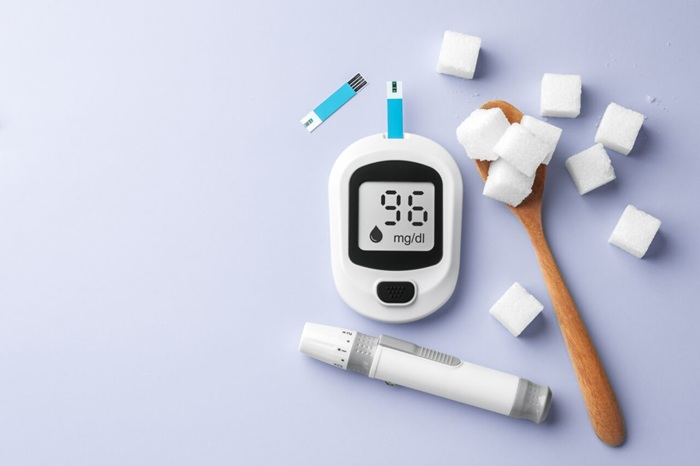Excess sugar consumption can lead to blood glucose spikes, worsening diabetes symptoms and an increase in the risk of complications like heart disease and nerve damage. Understanding the difference between natural and added sugars, managing daily intake, and making lifestyle adjustments, such as monitoring blood sugar and incorporating fibre-rich foods, can help maintain better blood glucose levels. For individuals in Bangalore, consulting endocrinologists and diabetologists ensures expert guidance for effective diabetes management.

When discussing sugar and diabetes, many assume that eating sugar directly causes diabetes. While sugar consumption alone isn’t the sole factor, excessive intake can increase the risk of developing Type 2 diabetes and exacerbate symptoms in those already diagnosed. The body’s ability to process glucose—a form of sugar—is at the heart of diabetes management.
This blog breaks down how sugar impacts diabetes, the sugar limit for diabetics, and provides actionable advice for managing daily intake.
Sugar plays a significant role in the body as a primary energy source. For those with diabetes, managing blood glucose levels becomes critical, as their bodies either don’t produce enough insulin (Type 1 diabetes) or can’t use insulin effectively (Type 2 diabetes).
Sugar consumption doesn’t directly cause diabetes but contributes to weight gain and obesity, which are major risk factors for Type 2 diabetes. Regularly consuming high levels of added sugars, particularly in sugary drinks and processed foods, strains the pancreas and can lead to insulin resistance.
Natural sugars in fruits and dairy are different from added sugars. Whole foods containing natural sugars also provide fibre, vitamins, and minerals, which slow sugar absorption and prevent blood sugar spikes. In moderation, natural sugars are not a significant risk factor.
For diabetics, monitoring glucose is key to avoiding complications. Foods high in added sugars cause rapid spikes in blood sugar, which can damage blood vessels and nerves over time. This can lead to complications like neuropathy, kidney damage, and vision loss.
For those managing diabetes, the sugar limit for diabetics depends on individual factors like weight, activity level, and overall health.
The difference between sugar and diabetes lies in how sugars are absorbed and processed:
If you’re struggling to manage your daily sugar intake or have symptoms like frequent urination, fatigue, or blurred vision, consult Endocrinologists and Diabetologists in Bangalore. They can provide tailored guidance and help you manage your condition effectively.
Managing sugar is crucial for preventing complications and improving overall well-being for those with diabetes. By understanding the difference between sugar and diabetes and focusing on a balanced diet, you can maintain stable blood glucose levels. If you’re in Bangalore, consult experts to optimise your diabetes care.
When a diabetic consumes too much sugar, it spikes blood glucose levels, which can strain the body over time. Persistent high sugar levels can contribute to nerve damage, cardiovascular issues, kidney problems, and vision loss. Proper blood sugar management is crucial to avoid these complications.
Consistently eating high amounts of sugar can lead to chronically elevated blood sugar levels. This worsens symptoms and increases the risk of serious complications, such as organ damage, heart disease, and neuropathy. Over time, uncontrolled sugar intake can severely impact quality of life.
Reducing sugar consumption can significantly improve blood sugar control, stabilise energy levels, and aid in weight management. Over time, this reduces the risk of complications and promotes better overall health. Improved insulin sensitivity and lower inflammation are additional benefits of cutting down on sugar.
Categories: Endocrinology and diabetology
How Sugar Affects Diabetes is available for appointments. Please fill the below form to book an appointment.
Unlock the door to exceptional healthcare, book an appointment with SPARSH Hospital and let your journey to wellness begin.